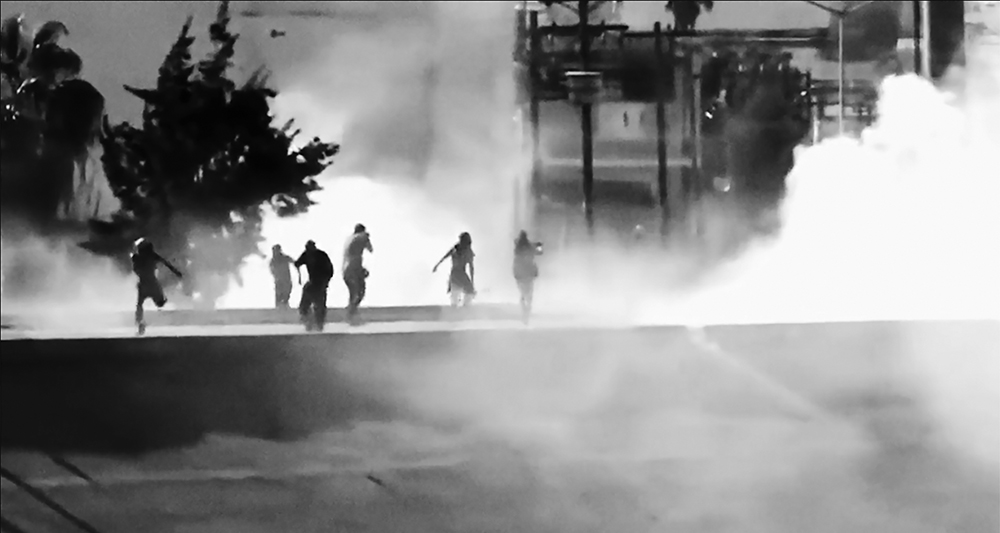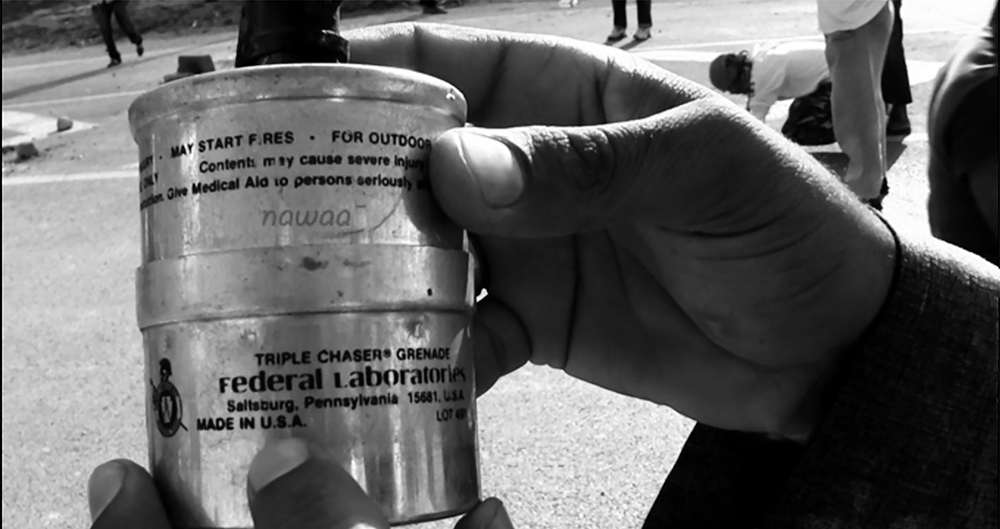Forensic Architecture / Version 5
PROTEST IS CENTRIPETAL: It draws crowds together, making us more than the sum of our parts. Tear gas is centrifugal: It scatters unified social movements into splintered, disorientated individuals and hands control of the streets back to the state. (Artforum 13.5.2019)
The Triple-Chaser—a tear gas grenade banned in international warfare but routinely deployed by defense forces against civilians both stateside and abroad—is one of the many weapons manufactured by the Safariland Group, whose CEO, Warren B. Kanders, is the vice chair of the board of the Whitney Museum of American Art. Kanders’s ties to the New York institution have fueled heated protests in the run-up to this year’s Whitney Biennial. (Artforum 13.5.2019)
In response to their invitation to the Biennale and the controversy surrounding Warren B. Kanders‘ connection to the institution, Forensic Architecture began training ‚computer vision‘ classifiers to identify Safariland tear gas canisters among the millions of images shared online. In collaboration with Praxis Films, they presented this research project as a video investigation titled Triple-Chaser.
The film at the Biennial is split into chapters that trace the history of Safariland, as well as the effects of tear gas on the human body, and known instances when it has been used to suppress dissent, including the use of tear gas in the 2013 Gezi Park protests in Turkey. It also lays out the role that Kanders plays in Sierra Bullets, a company that produces ammunition that has been used by Israeli Defense Forces, and details the European Center for Constitutional and Human Rights’s use of the Forensic Architecture’s research to put pressure on Kanders’s company. (Artnet 13.05.2019)
At the heart of the Whitney-Kanders controversy is the fact that art, by lending cultural and symbolic capital, often supports human-rights violations, not only that it is supported by these abuses. … As participants in the biennial, the only response that felt responsible, and justifiable, was to turn the instruments of reputation-laundering, insofar as we had our hands on the controls, against those with the reputations to lose. (Forensic Architecture, Artforum 13.5.2019)
Kanders resigned from the Whitney’s board of trustees in June 2020 following protests by the activist group Decolonize This Place.


